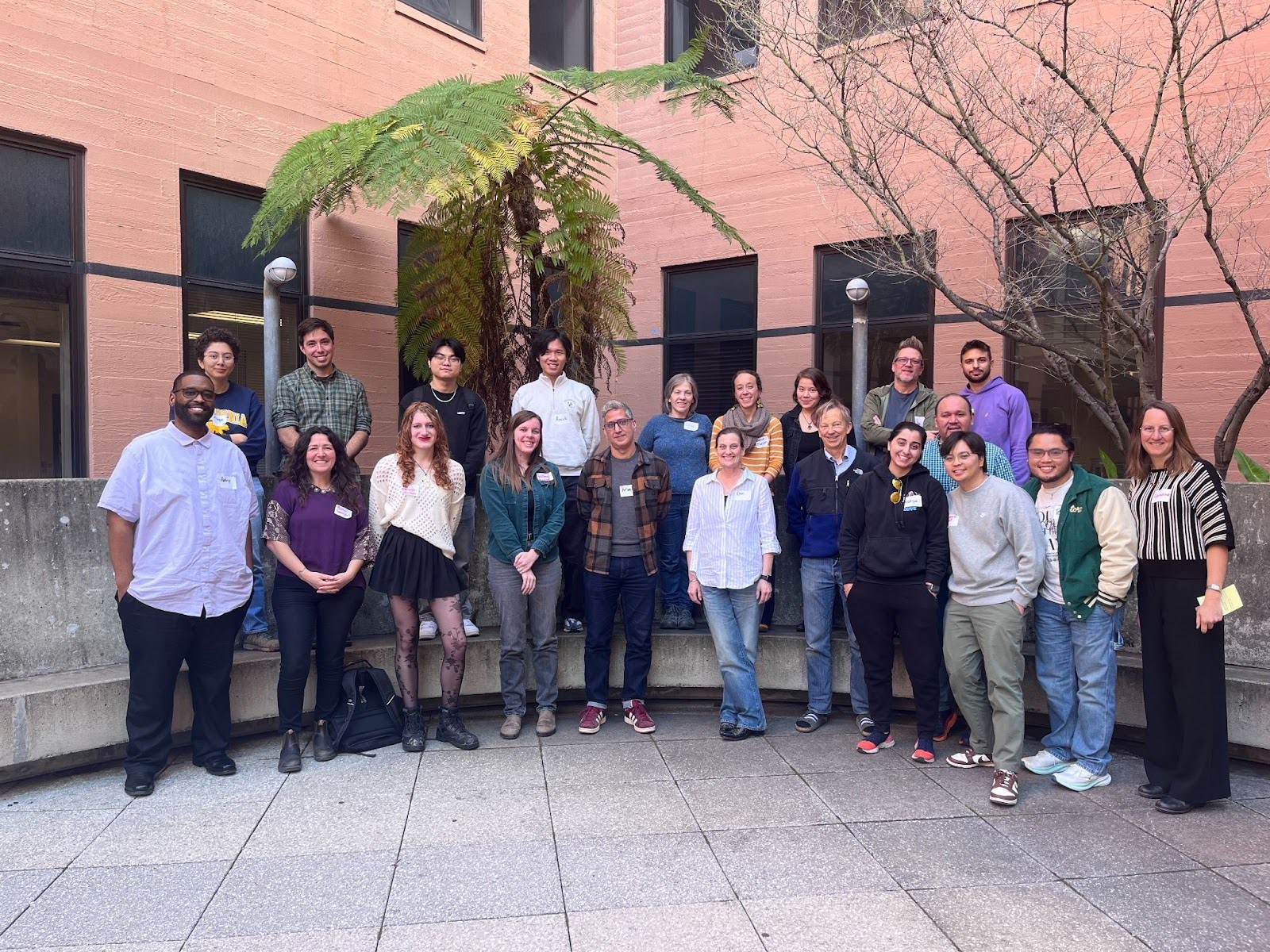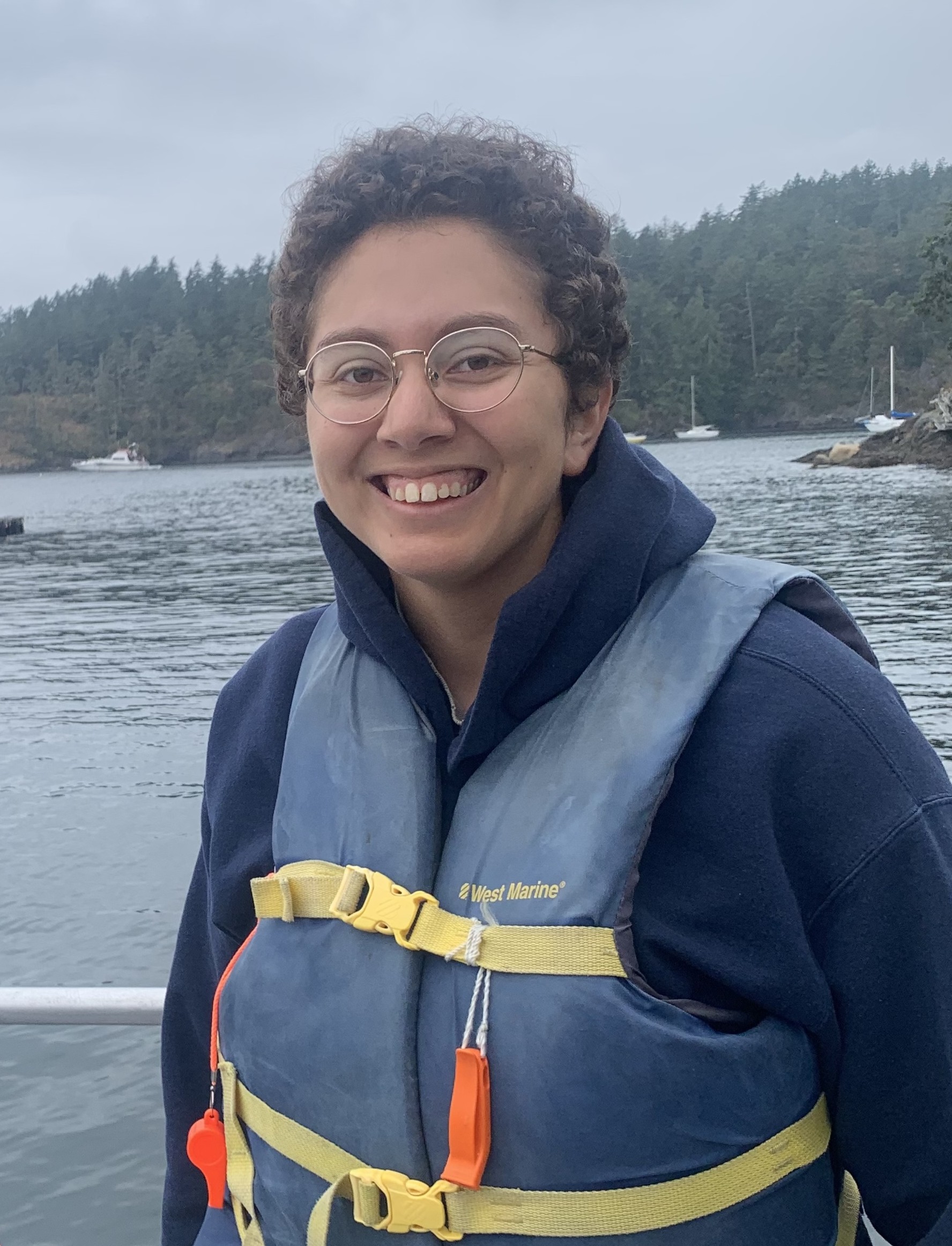
When Caroline Williams thinks about ecosystems, she doesn’t just picture insects pollinating flowers or birds feeding on seeds. She imagines people—students and faculty, scientists and staff—woven together in networks of support and care.
“In an ecosystem, resilience comes from many strong connections,” said Williams, a professor in UC Berkeley’s Department of Integrative Biology. “If one piece falters, others step in, and the system survives. Human communities work the same way. We need those redundant, trusting connections to withstand change.”
For Williams, this scientific truth doubles as a philosophy of belonging. Bridging, she says, is not a metaphor—it’s ecology in action.
On September 5, Williams, the Othering and Belonging Institute’s (OBI) Campus Bridging Project and the Graduate Division will host a Biological Sciences Bridging event in the Valley Life Sciences Building. From noon to 3 p.m., the lunch gathering will bring together students, faculty, and staff to share stories of their experiences in science and to build a culture of collaboration across departments.
“It’ll be a place we hope will build a sense of shared trust,” said Williams. “Our Campus Bridging Project and Graduate Division partners have really helped to cultivate interdisciplinary spaces for us across campus.”
Launched in 2020 with support from the Eveyln and Walter Haas Jr. Fund the Campus Bridging Project asks a central question: What does it take to bring UC Berkeley’s community together across real differences? In pursuit of this, the project has organized more than 30 events, workshops, and bridging courses spanning 20 departments.
The work begins by listening to students, and the project’s team has heard stories of exclusion—driven by lack of space, representation, and resources—as well as stories of connection. From there, it has trained student leaders, supported grassroots efforts, and partnered with faculty and staff to use bridging as a tool for increasing belonging at UC Berkeley.
“Bridging is a story of bravery,” said Campus Bridging Project Specialist Julia McKeown. “It takes courage to cross the space between different identities, ideologies, and experiences—to witness each other in our full humanity.”
From exclusion to belonging
Williams’s instinct for bridging grew from her own experiences of belonging and exclusion.
Raised in New Zealand, she taught abroad in Japan and Malaysia, where she first felt the unease of being an outsider but also witnessed the richness of true multicultural living. In 2012, while obtaining her Ph.D. in Canada, she studied intercultural communication, seeing how structures could either foster safety or shut people out.
When she arrived at Berkeley in 2014, students quickly began sharing stories of microaggressions and exclusion. “Those stories drove me to want to make things better,” she said.
As equity advisor for her department, Williams realized systemic change required more than case-by-case fixes. Bridging, she believed, could surface those stories safely and create space for new ways of relating in the sciences, where long hours and steep hierarchies often define academic life.
“In lab culture, the stakes are high, the hours are long, and the power dynamics between faculty and students are profound,” she said. “We needed a space where people could pause, reflect, and see one another differently.”
Building trust through shared stories
As part of OBI’s Campus Bridging Project, the Long Bridge Program—created by McKeown and OBI Assistant Director Stephen Menendian—was designed to tackle deeper divides, such as tensions between faculty and graduate students after the 2022 strike. Inspired by a campus-wide Long Bridge workshop in April 2024, Williams began to wonder: what if biological sciences had its own bridging space—one tailored to the unique pressures of labs, fieldwork, and rigid hierarchies?
That question became the seed for Bridging in the Biosciences, a gathering Williams helped organize last February with Berkeley colleagues Aubrey Green and Burcu Tung, the Campus Bridging Project, the Graduate Division, and scholars across six departments, from Molecular and Cell Biology to Nutritional Sciences. The event drew participants from five bioscience programs for a communal lunch where graduate students and faculty shared stories, identified systemic barriers, and imagined what inclusive science might look like.
Small-group discussions surfaced shared values such as honesty, resilience, and work-life balance, while also revealing divides: faculty emphasized ideals like “trust,” while students pressed for reforms like tying mentorship to tenure. “That’s exactly what bridging is meant to do—surface the differences we usually leave unsaid,” said Williams.
“A proof of concept”
The feedback confirmed its impact: 87 percent of participants said they would recommend the program, and 80 percent rated it highly for generating useful ideas. “I was struck by how candid people were willing to be,” one participant reflected. Faculty heard students differently, students realized their struggles weren’t personal failings but structural issues, and together they co-wrote recommendations for more inclusive lab environments.
“It was proof of concept,” said Williams. “If we want a more just and resilient future, we need to acknowledge the human side of science.”
For Maya Samuels-Fair, a sixth-year Ph.D. candidate, the experience was encouraging. “In academia, everyone tries to show their strengths,” she said. “Bridging created space for students and faculty to share vulnerabilities—and that builds trust.”
Investing in the future
Williams said she remains committed. “We’re not just building better labs or better departments. We’re building communities that can thrive together.”
And for Samuels-Fair, that commitment is already reshaping their experience. “I left feeling like I had more than one supportive advisor,” she said. “I had a network of faculty who cared. That makes me feel like I belong here.”
In a time when authoritarian policies like book bans, attacks on academic freedom, and restrictions on voting rights are gaining traction across the country, bridging offers a different path forward.
And for McKeown, the work is both urgent and fragile due to the dangers and the allure of “single-story stereotypes and flattened narratives.” Bridging, on the other hand, invites nuance and encourages curiosity in engaging with different stories and unique perspectives by providing a pathway for finding shared values and connection in one another, they said.
“Bridging does not erase who we are. It asks us to learn about each other and to begin envisioning and working towards the kind of world we need to build where all of us can experience our full belonging,” McKeown added. “The Campus Bridging Project has had the privilege of beginning to build that world at UC Berkeley but without continued funding support for our work this is where our story ends.”
For more information about the Campus Bridging Project contact Julia McKeown at julia_mckeown@berkeley.edu.



